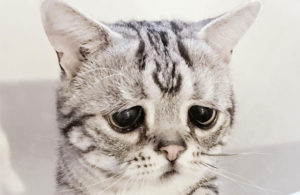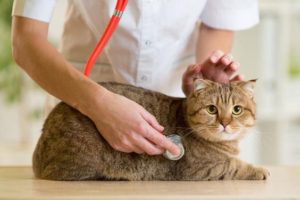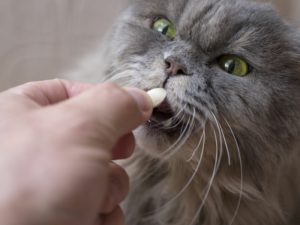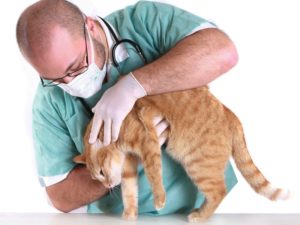
Table of Contents
- Introduction
- Types of Gastrointestinal Infections in Cats
- Bacterial Infections
- Viral Infections
- Parasitic Infections
- Symptoms of Gastrointestinal Infections in Cats
- Vomiting
- Diarrhea
- Abdominal Pain
- Loss of Appetite
- Diagnosis of Gastrointestinal Infections in Cats
- Physical Examination
- Fecal Analysis
- Blood Tests
- Imaging Techniques
- Treatment Options for Gastrointestinal Infections in Cats
- Antibiotics
- Antiviral Medications
- Deworming Medications
- Fluid Therapy
- Supportive Care for Cats with Gastrointestinal Infections
- Dietary Modifications
- Probiotics
- Symptomatic Relief
- Prevention of Gastrointestinal Infections in Cats
- Vaccinations
- Proper Hygiene Practices
- Regular Veterinary Check-ups
- Complications and Prognosis
- Dehydration
- Malnutrition
- Secondary Infections
- Long-term Effects
- When to Consult a Veterinarian
- Persistent or Severe Symptoms
- Changes in Behavior or Appetite
- Multiple Cats Affected
- Conclusion
- Additional Resources
1. Introduction
Cats are susceptible to gastrointestinal infections, which can cause discomfort and potentially lead to serious health issues if left untreated. These infections can be caused by bacteria, viruses, or parasites, and they can affect different parts of the digestive system, including the stomach, intestines, and colon. Gastrointestinal infections can occur in cats of all ages, but kittens and cats with weakened immune systems are particularly vulnerable.
In this guide, we will delve into the various types of gastrointestinal infections in cats, their symptoms, methods of diagnosis, and available treatment options. It is important to note that while this guide provides valuable information, it is not a substitute for veterinary care. If your cat is showing signs of a gastrointestinal infection, it is crucial to consult with a veterinarian for an accurate diagnosis and appropriate treatment.
2. Types of Gastrointestinal Infections in Cats

Gastrointestinal infections in cats can be caused by different types of pathogens, including bacteria, viruses, and parasites. Let’s explore each of these categories in more detail:
Bacterial Infections
Bacterial infections are a common cause of gastrointestinal issues in cats. Some of the most common bacterial pathogens that can infect cats’ gastrointestinal tracts include:
- Salmonella: Salmonella is a type of bacteria that can cause gastroenteritis in cats. It is often transmitted through contaminated food or water.
- Campylobacter: Campylobacter is another bacterial pathogen that can cause gastrointestinal infections in cats. It is commonly associated with diarrhea and can be transmitted through contact with infected animals or contaminated environments.
- Clostridium difficile: Clostridium difficile, also known as C. difficile, is a bacterium that can cause severe diarrhea and other gastrointestinal symptoms in cats. It is often associated with the use of antibiotics, which can disrupt the balance of bacteria in the gut.
Viral Infections
Viruses are another common cause of gastrointestinal infections in cats. Some of the most prevalent viral pathogens that affect cats’ gastrointestinal tracts include:
- Feline Panleukopenia Virus (FPV): FPV is a highly contagious virus that can cause severe gastrointestinal symptoms in cats, including vomiting, diarrhea, and dehydration. It is commonly known as feline distemper.
- Feline Calicivirus (FCV): FCV is a common viral pathogen that can cause respiratory and gastrointestinal symptoms in cats. It is often associated with oral ulcers and can lead to loss of appetite and difficulty eating.
- Feline Coronavirus (FCoV): FCoV is a coronavirus that can cause mild gastrointestinal symptoms in cats, such as diarrhea. In rare cases, it can lead to a more severe condition known as feline infectious peritonitis (FIP).
Parasitic Infections
Parasites are another significant cause of gastrointestinal infections in cats. The most common parasites that can affect cats’ gastrointestinal tracts include:
- Intestinal Worms: Intestinal worms, such as roundworms, hookworms, and tapeworms, can cause gastrointestinal symptoms in cats, including diarrhea, weight loss, and a distended abdomen.
- Giardia: Giardia is a protozoan parasite that can cause diarrhea and other gastrointestinal symptoms in cats. It is often contracted through the ingestion of contaminated water or food.
- Coccidia: Coccidia are microscopic parasites that can infect the intestines of cats, leading to diarrhea, vomiting, and weight loss.
3. Symptoms of Gastrointestinal Infections in Cats

Gastrointestinal infections in cats can manifest in various ways, depending on the specific pathogen involved and the severity of the infection. Here are some common symptoms to watch out for:
Vomiting
Vomiting is a common symptom of gastrointestinal infections in cats. It can range from occasional episodes to frequent and severe vomiting. Cats may also exhibit other signs of discomfort, such as retching, drooling, and reluctance to eat.
Diarrhea
Diarrhea is another prevalent symptom of gastrointestinal infections in cats. It can be characterized by loose, watery stools and increased frequency of bowel movements. In some cases, the diarrhea may contain blood or mucus.
Abdominal Pain
Cats with gastrointestinal infections may experience abdominal pain or discomfort. They may exhibit signs such as restlessness, pacing, hunching over, or sensitivity when their abdomen is touched.
Loss of Appetite
Gastrointestinal infections can cause a loss of appetite in cats. They may show disinterest in their regular food and exhibit reduced food intake. In severe cases, cats may refuse to eat altogether.
It is important to note that these symptoms can also be indicative of other health issues, so it is crucial to consult with a veterinarian for an accurate diagnosis.
4. Diagnosis of Gastrointestinal Infections in Cats
If you suspect that your cat has a gastrointestinal infection, it is essential to consult with a veterinarian for a proper diagnosis. The veterinarian will perform a thorough examination and may recommend the following diagnostic tests:
Physical Examination
During the physical examination, the veterinarian will assess your cat’s overall health and look for any visible signs of illness or discomfort. They will palpate the abdomen to check for any abnormalities or tenderness.
Fecal Analysis
A fecal analysis is a common diagnostic test used to identify the presence of parasites or abnormal bacteria in the cat’s stool. The veterinarian will collect a fecal sample and examine it under a microscope to identify any parasites or bacteria.
Blood Tests
Blood tests can provide valuable information about the cat’s overall health and help identify any underlying issues. The veterinarian may perform a complete blood count (CBC) to check for signs of infection or inflammation.
Imaging Techniques
In some cases, the veterinarian may recommend imaging techniques such as X-rays or ultrasound to get a closer look at the cat’s gastrointestinal tract. These imaging techniques can help identify any structural abnormalities or blockages.
5. Treatment Options for Gastrointestinal Infections in Cats

The treatment for gastrointestinal infections in cats will depend on the specific pathogen involved and the severity of the infection. Here are some common treatment options:
Antibiotics
If the gastrointestinal infection is caused by bacteria, the veterinarian may prescribe antibiotics to target the specific bacteria involved. It is essential to follow the veterinarian’s instructions regarding the dosage and duration of antibiotic treatment.
Antiviral Medications
For viral gastrointestinal infections, such as feline panleukopenia virus or feline calicivirus, there are no specific antiviral medications available. Treatment typically focuses on supportive care to manage symptoms and boost the cat’s immune system.
Deworming Medications
If intestinal worms or other parasites are the cause of the gastrointestinal infection, the veterinarian may prescribe deworming medications to eliminate the parasites. These medications may need to be administered multiple times to ensure effectiveness.
Fluid Therapy
In cases of severe dehydration or electrolyte imbalances, the veterinarian may recommend fluid therapy. This can involve administering fluids intravenously or subcutaneously to rehydrate the cat and restore proper electrolyte balance.
6. Supportive Care for Cats with Gastrointestinal Infections
In addition to specific treatments, cats with gastrointestinal infections may require supportive care to help alleviate symptoms and promote recovery. Here are some common supportive care measures:
Dietary Modifications
The veterinarian may recommend dietary modifications to help ease the cat’s digestive system and promote healing. This can involve feeding a bland diet or switching to easily digestible foods. It is crucial to follow the veterinarian’s dietary recommendations.
Probiotics
Probiotics are beneficial bacteria that can help restore the balance of the cat’s gut flora. The veterinarian may recommend probiotic supplements or specific foods that contain probiotics to support the cat’s gastrointestinal health.
Symptomatic Relief
To provide symptomatic relief, the veterinarian may prescribe medications to alleviate specific symptoms such as vomiting or diarrhea. It is crucial to administer these medications as directed by the veterinarian.
7. Prevention of Gastrointestinal Infections in Cats

Preventing gastrointestinal infections in cats is essential for maintaining their overall health. Here are some preventive measures to consider:
Vaccinations
Vaccinations play a crucial role in preventing certain viral infections, such as feline panleukopenia virus and feline calicivirus. It is important to ensure that your cat’s vaccinations are up to date and follow the recommended vaccination schedule.
Proper Hygiene Practices
Maintaining proper hygiene practices can help prevent the transmission of gastrointestinal pathogens. This includes regularly cleaning litter boxes, washing food and water bowls, and practicing good hand hygiene when handling your cat.
Regular Veterinary Check-ups
Regular veterinary check-ups are essential for monitoring your cat’s overall health and detecting any potential health issues early on. The veterinarian can provide guidance on preventive measures specific to your cat’s individual needs.
8. Complications and Prognosis
Gastrointestinal infections in cats can lead to various complications if left untreated or if the cat’s immune system is compromised. Some potential complications include:
Dehydration
Severe vomiting and diarrhea can lead to dehydration in cats. Dehydration can be life-threatening, especially in young kittens and older cats. Prompt veterinary care and fluid therapy are crucial in managing and preventing dehydration.
Malnutrition
Gastrointestinal infections can disrupt the cat’s ability to absorb nutrients from food, leading to malnutrition. It is important to provide appropriate nutrition and, if necessary, consult with a veterinarian regarding dietary modifications or supplements.
Secondary Infections
In some cases, gastrointestinal infections can weaken the cat’s immune system and make them more susceptible to secondary infections. These secondary infections can further complicate the cat’s overall health and require additional treatment.
Long-term Effects
In certain cases, gastrointestinal infections can have long-term effects on a cat’s digestive system. This may include chronic inflammation, altered bowel function, or increased susceptibility to future infections. Regular monitoring and appropriate management are essential in these cases.
9. When to Consult a Veterinarian
It is important to consult with a veterinarian if you notice any signs or symptoms of gastrointestinal infections in your cat. Here are some indications that warrant veterinary attention:
Persistent or Severe Symptoms
If your cat’s symptoms persist or worsen over time, it is crucial to seek veterinary care. This includes persistent vomiting, diarrhea, abdominal pain, or loss of appetite.
Changes in Behavior or Appetite
If your cat exhibits changes in behavior, such as lethargy, withdrawal, or disinterest in activities they usually enjoy, it may indicate an underlying health issue. Changes in appetite, such as refusing to eat or showing disinterest in food, should also be evaluated by a veterinarian.
Multiple Cats Affected
If you have multiple cats in your household, and more than one cat is exhibiting signs of gastrointestinal infection, it may indicate a contagious or environmental factor. Consulting with a veterinarian can help determine the cause and prevent further spread.
10. Conclusion
Gastrointestinal infections in cats can be caused by various pathogens and can lead to a range of symptoms and complications. Prompt veterinary care and appropriate treatment are essential in managing these infections and promoting the cat’s overall health. It is important to follow preventive measures and consult with a veterinarian for an accurate diagnosis and treatment plan.
Remember, this guide is not a substitute for veterinary care. If you suspect your cat has a gastrointestinal infection or any other health issue, consult with a veterinarian for proper diagnosis and treatment.
11. Additional Resources
- Centers for Disease Control and Prevention (CDC) – Healthy Pets, Healthy People
- American Association of Feline Practitioners (AAFP)
- The International Society for Feline Medicine (ISFM)
Note: The information provided in this guide is based on research and veterinary knowledge at the time of writing. It is subject to change as new information becomes available. Always consult with a veterinarian for specific advice regarding your cat’s health.
